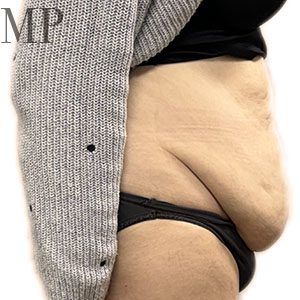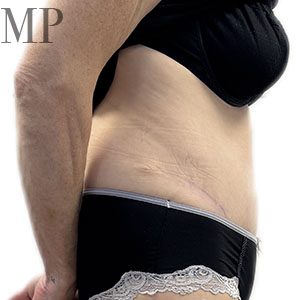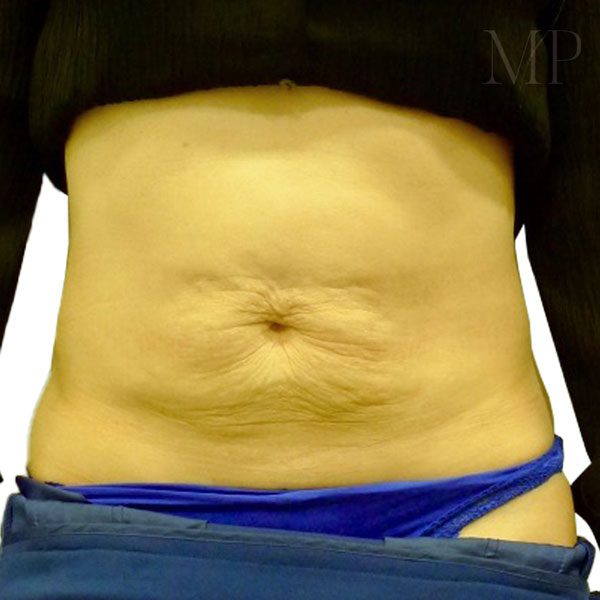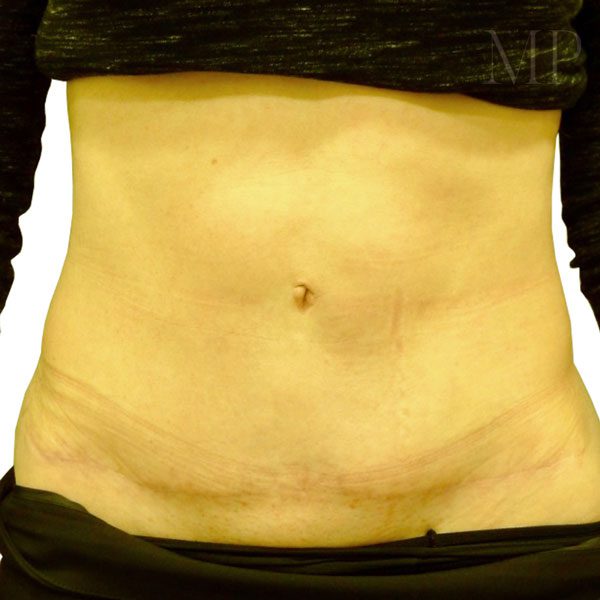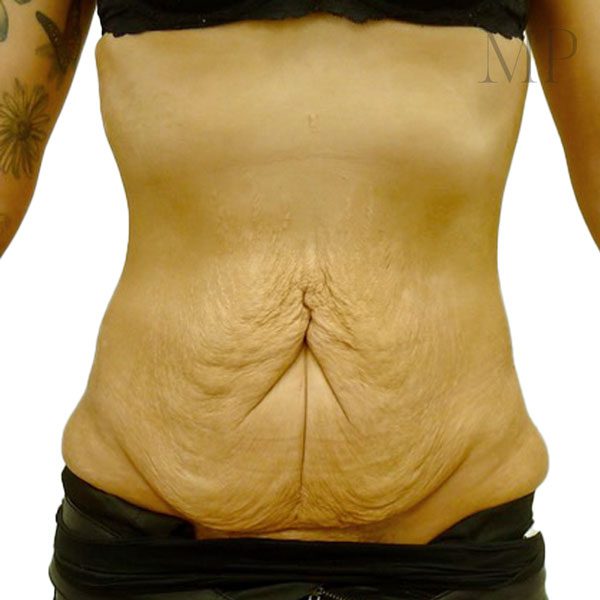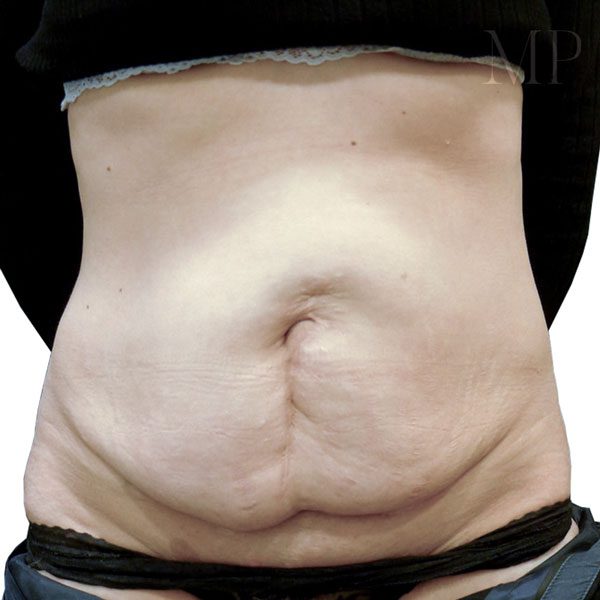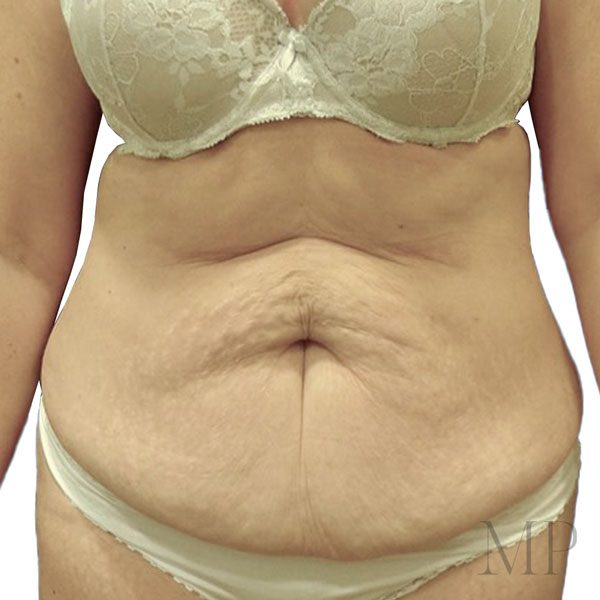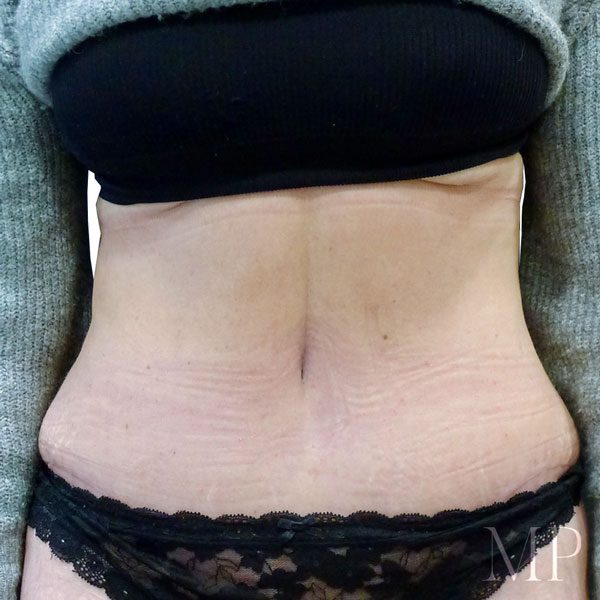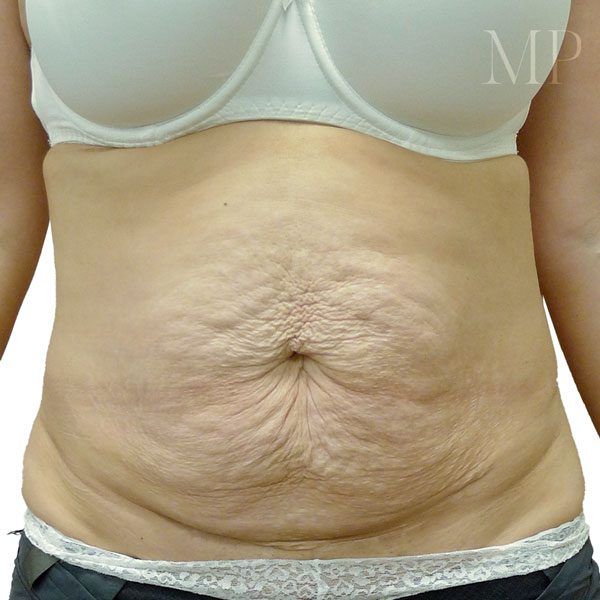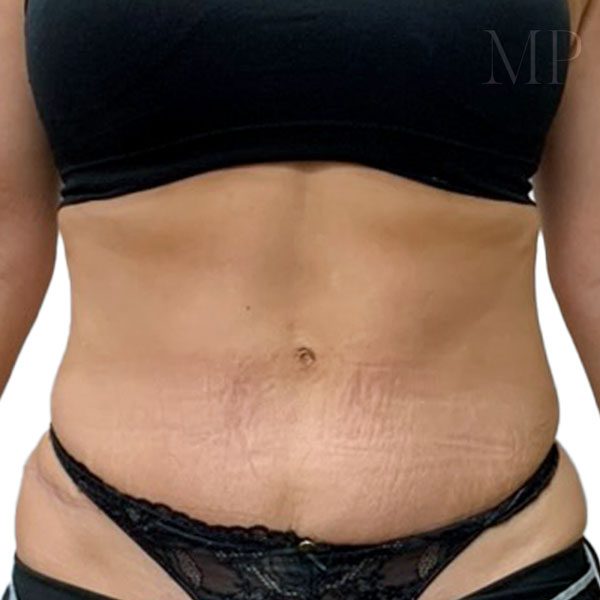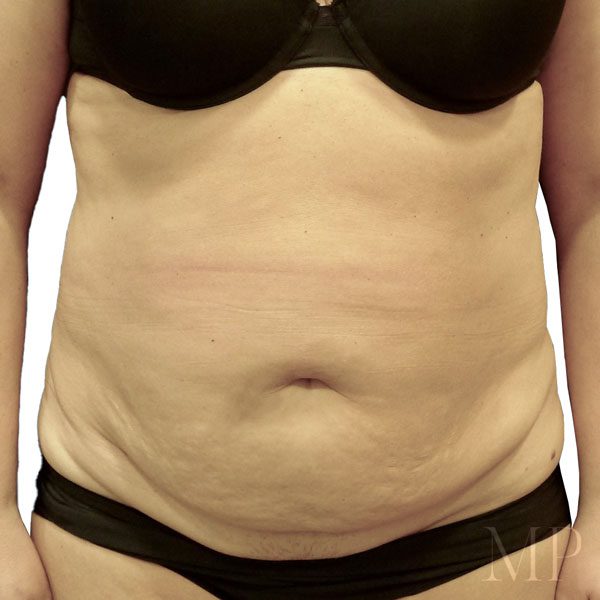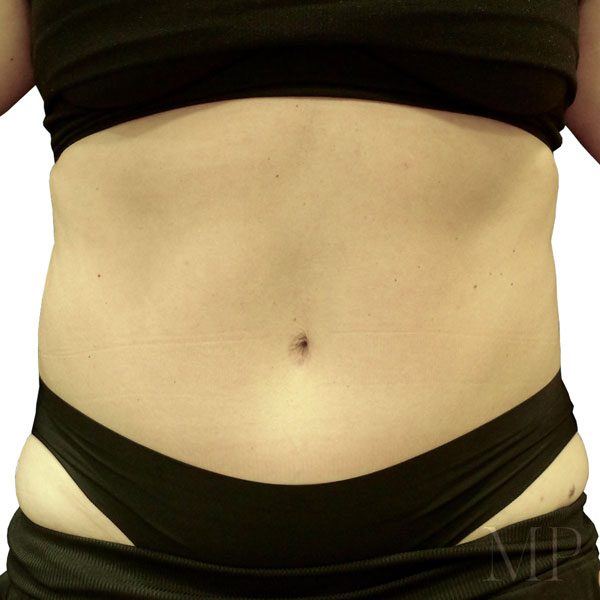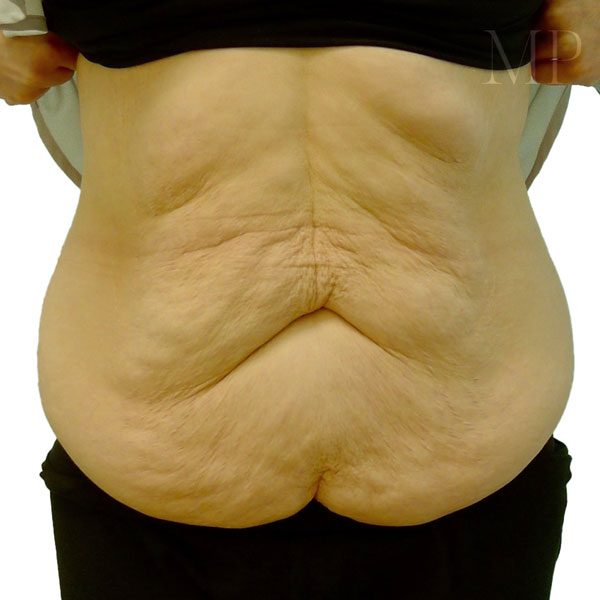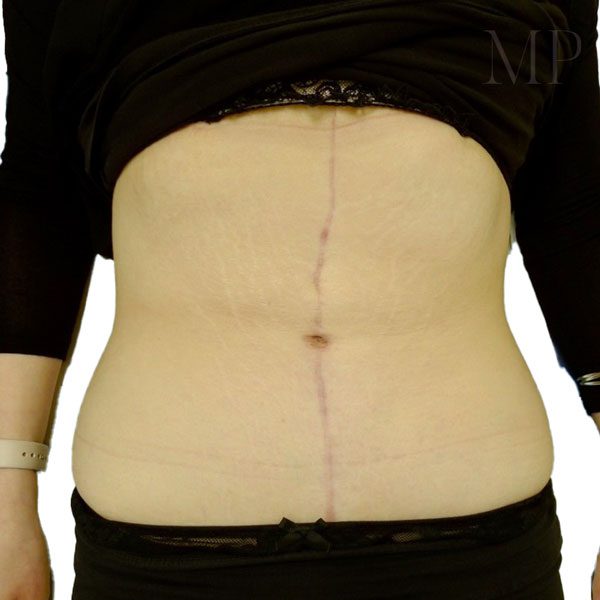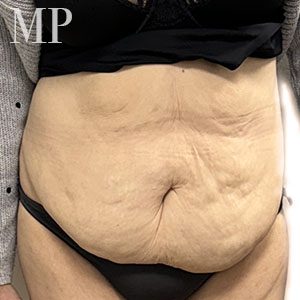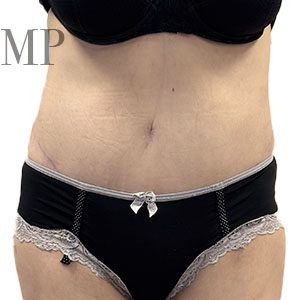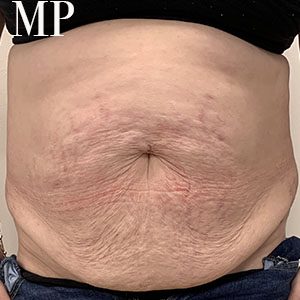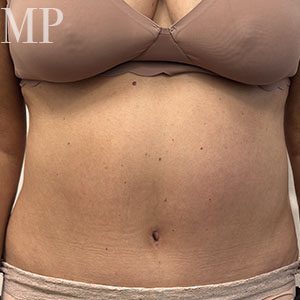Abdominoplasty
With time and also pregnancy the abdomen or tummy changes. There may well be skin excess, stretch marks and also alteration in the distribution of fat. The deeper muscular structures may also change. They may weaken and separate in the midline causing an out pouching when sitting up (hernia).
The abdominoplasty procedure is an operation that addresses each of these areas to improve the function of the tummy and also improve its appearance.
Mr Potter will examine you in the out patient clinic over several separate consultations and discuss each of the areas in turn in relation to you, your tummy and your life style.
The procedure aids to remove excess skin from the lower abdomen and at the same time if needed tighten the “six pack” muscles that can sometimes drift with time and or pregnancy.
We can also undertake this procedure with liposuction if necessary. This aims to reduce any increase in fat towards the outside of the abdomen and thus feather in the changes from front to back.
There are many types of abdominoplasty. Mr Potter undertakes two different types of abdominoplasty;
1. The smaller “mini abdominoplasty” procedure is where we remove excess skin as a horizontal ellipse from the lower part of the abdomen (leaving a scar below the bikini line).
2. Formal abdominoplasty procedure in which we excise the skin from below the tummy button to the pubic bone as a horizontal orientated ellipse of skin and fat. We re-drape the abdominal skin and suture close. This also recites the tummy button. This is evident by neat scars around the tummy button that are only visible on close inspection. These scars we place well within the indentation of the tummy button. A formal abdominoplasty procedure runs the advantage of often excising many of the stretch marks often found within the lower abdominal skin. This procedure we often undertake in conjunction with simultaneous liposuction. The main scar is below the bikini line.
A mini abdominoplasty we can undertake as a day case procedure however the formal abdominoplasty would involve an average inpatient hospital stay of 1-2 days.
If you would like to discuss potential treatment with Matthew Potter please contact us here.
We will admit you on the day of your procedure. You will see your anaesthetist as well as Mr Potter prior to the operation. We then mark the sites of skin excess to be removed confirmed.
We undertake this procedure with a General Anaesthetic and takes approximately 2.5 hours. With a full abdominoplasty there may be the need for drains placed within the cavity to remove any excess fluid, decrease swelling and inflammation. These we usually remove the following day after the procedure or when they stop producing wound fluid.
The majority of sutures used are dissolving and the wound dressings consist of medical grade skin coloured surgical tape which is designed to be washed under a shower head daily and left to air dry.
Once you are mobilising well, we will discharge you from the hospital.
The surgical tape design is to adhere to the areas but will start to peel off after a few days or a weeks. These tapes you can trim at home.
There will be resultant bruising to the areas that will manifest after a few days. With certain patients compression garments will need to be warn after the procedure to limit the swelling.
It will take on average 5-7 days for you to regain a relative normal mobility.
You will be able to return to low demand activities such as office work within two weeks. Strenuous activities should be put on hold for at least 6 weeks.
You will need to wear supportive garments for at least 6 weeks following the procedure.
Coughing and straining should be avoided for 2 weeks.
You should avoid driving until you feel strong enough to perform an emergency manoeuvre. This on average takes at least 4 weeks. You will be seen at a cosmetic nurse led clinic at a week following the procedure to review the operative sites and the wounds. Mr Potter will see you shortly following the procedure and give you your successive out patient clinic reviews until all has settled.

Years undertaking Abdominoplasty
16 years
Percentage of cases needing an unplanned post operative return to theatre
0%
Number of cases needing revision
Single case needed revision of small area of skin excess under local anaesthetic as a day case
Drains used
This is on a case by case basis
Average inpatient stay
2 post operative nights
Wound dehiscence post operatively needing dressings
0%
